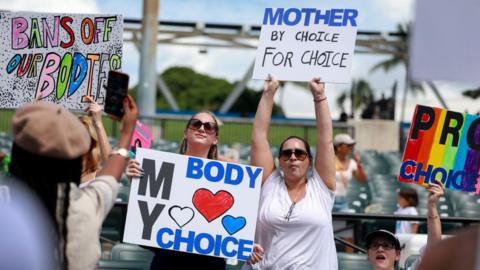This is the first presidential election held since the US Supreme Court overturned Roe v Wade, giving states the right to regulate abortion themselves. Since then, 17 states have enacted bans that restrict nearly all abortions within their borders.
During the 2022 midterms, held months after the top court's decision, voters in conservative states Kentucky and Kansas voted against restricting abortion, sending a message that access to the procedure is broadly supported by the American people. The issue is also credited with helping the Democrats do better than expected in congressional races.
Now, Democrats hope again that abortion measures in key battleground states like Arizona and Nevada will drive their voters to the polls to back abortion rights – and while they’re at it, propel Vice-President Harris to the White House and their down-ballot candidates to victory.
In a sign of how salient the issue of abortion has been for voters, Republican White House nominee Donald Trump, a resident of Florida, has tried to back away from his once-hardline stance against abortion. Now, he says he thinks the decision on how it should be regulated ought to be left up to states, and voters.
Last August in an interview with NBC, he seemed to indicate he would vote in favour of Amendment 4. But after outcry from his anti-abortion supporters, he said he would vote against it.
